For any lawyer, making partner represents a major career milestone. Whether as a non-equity partner, or equity partner where an ownership stake is involved, the title carries the added responsibility of bringing in new business, so being named partner is not Continue reading 5 Skills to Develop Now to Make Partner in 5 Years
Tag Archives: legal industry
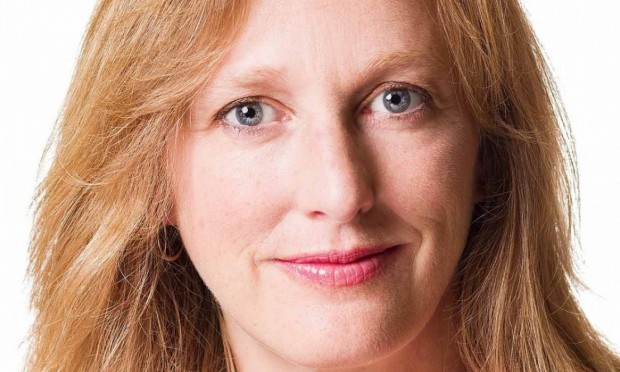
Rethinking Diversity: Tackle the “Pipeline Problem†by Tapping into Overlooked Talent
There is perhaps no hotter topic—and seemingly intractable problem—in the legal profession today than that of the diversity gap. Despite good intentions, client incentives, innovative ideas, best practices guides, tech tools, and a host of surveys, initiatives, benchmarks, and trainings, true diversity Continue reading Rethinking Diversity: Tackle the “Pipeline Problem†by Tapping into Overlooked Talent
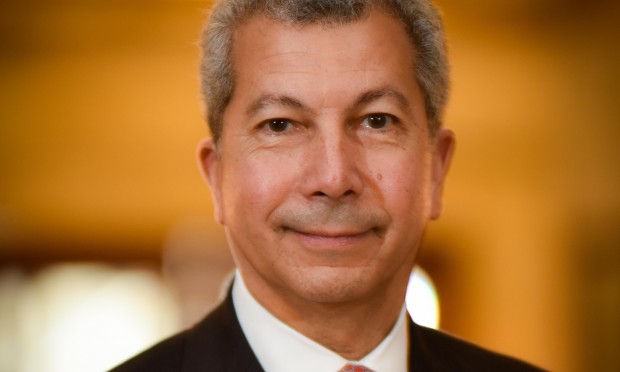
Career Advice with Roger Juan Maldonado, Partner at Smith, Gambrell & Russell, LLP
- This is the third installment in our interview series with successful lawyers in the field. Roger Juan Maldonado shares his career journey from Yale Law School to Partner at Smith, Gambrell & Russell, LLP. He is also President of the New York City Bar Association.
Career Stats
Name: Roger Juan Maldonado
Current Role: President, New York City Bar Association; Partner at Smith, Gambrell & Russell, LLP
Law School: Yale Law School
First Job: South Brooklyn Brooklyn Legal Services
Years of Experience: 37
Tell us about your career path and how you got to be where you are today?
I began my legal career as an attorney in the Housing Unit of South Brooklyn Legal Services (“SBLSâ€). We handled the entire spectrum of litigations, ranging from hold-over and non-payment eviction proceedings, actions against landlords to remedy housing code violations, administrative proceedings on behalf of public housing residents, appeals in State and federal courts and class actions on behalf of applicants for and recipients of Section 8 benefits. The Project Director at SBLS also asked me to assist him in the class action brought or behalf of students requiring special education services and to focus on the needs of English-Language-Learners. Believe it or not, I am still working on enforcement proceedings related to the Consent Judgment entered in that case (the “Jose P.†litigation).
When my wife became pregnant with our second child, she decided that she wanted to take some time off from her medical career, which necessitated my moving to private practice. I joined Teitelbaum & Hiller (“T&Hâ€), a small firm whose named partners had represented English-Language-Learners in a different class action and who welcomed my bringing the Jose P. litigation with me to the firm. At T&H, I obtained my first major client (the Government Development Bank for Puerto Rico — the “GDBâ€) through contracts from college, law school and Kathy Wylde, whose former agency SBLS had sued in actions challenging a planned major development on the grounds that it would accelerate the displacement of low-income residents in the surrounding areas. Fortunately, Kathy did not carry a grudge — in fact, she reached out to introduce me to the GDB as soon as she learned I had entered private practice.
In 1996, T&H dissolved and I joined what became Balber Pickard Maldonado & Van Der Tuin, PC (“BPMVâ€), where I brought the Jose P. litigation and several actions on behalf of the GDB with me. At BPMV — through the same college friend who helped me obtain the GDB as a client — I began representing Spanish-speaking musicians in copyright infringement cases brought against the major record labels and music publishers (My friend knew I was fluent in Spanish and would be able to communicate directly with my clients). I also began representing Latin American companies and Spanish-speaking entrepreneurs in commercial litigations and arbitrations brought in New York, Puerto Rico and Florida.
In February 2017, BPMV merged into Smith, Gambrell & Russell, LLP (“SGRâ€), where I continue to represent musicians, independent record labels and publishing companies in copyright infringement actions and matters involving payments of royalties and enforcement of contracts relating to the music and publishing industries. I also continue to represent Latin American companies and Spanish speaking business-persons in commercial litigations and arbitrations, and the Jose P. class of students who require special education services. In November 2017, I was nominated to serve as President of the New York City Bar Association. I began my two-year term as City Bar President on May 15, 2018, and just one week later had the privilege of introducing Justice Ruth Bader Ginsburg at the annual lecture on Women and the Law that the City Bar hosts in her honor.
What’s the biggest challenge in your current role, and how are you handling it?
Right now, my biggest challenge is balancing the pressing requirements of my litigation and client matters at SGR, while also attending to my duties as City Bar President, where I must meet with each Chair of the City Bar’s 150 Committees and Task Forces, review all reports drafted by these entities, participate in many meetings as the City Bar’s representative and serve as host for many functions sponsored by the City Bar. Fortunately, my wife (who has returned to work on a full-time basis) has agreed to shoulder even more responsibility for keeping up our home, and our two children are grown and have embarked on their own legal careers. I would not have been able to accept serving as City Bar President, however, without the support of my partners and colleagues at SGR, who already have begun to assist me with and take over certain of my litigations and client matters.
Where Do You Go For Career Advice?
As always, I look to my colleagues at my firm for advice on complex strategy decisions in my litigations and matters, on how to deal with difficult clients and whether and how to take on a new client or matter. I have the benefit of now having many more colleagues at SGR, including my former BPMV colleagues, whose counsel I can and do seek. With respect to my duties at the City Bar, I consult the excellent staff of the City Bar on all decisions I must make as City Bar President, and also turn to former City Bar Presidents for advice on matters with which I know they have greater experience than I do.
Tell us more about your focus as City Bar President:
I’ll preface this by saying that every former City Bar president I’ve spoken with has made clear that it will be necessary to respond to the issues of the day as they come up, separate and apart from the agenda items I may wish to pursue. That said, I believe that it’s important for the City Bar to engage other institutions and organizations in a collective effort to better understand the appropriate role of law in society. We need to work together with the communities in which we live and work and those with which we interact – here in New York, across the U.S. and abroad – to ensure that the rule of law operates to serve all members of these communities and not just those with the resources to access the courts and petition government. The Committees and Task Forces at the City Bar should continue to analyze and comment upon the current legal framework pertaining to immigration, access to justice, women’s rights, housing, education and health services, to name just a few of the issues we are likely to be called upon to confront one way or another by external forces.
Beyond work, what is most important to you?
My family is the single most important thing in my life. Fortunately, my wife, children, parents, brothers and other close family members always have taken great interest in the other two things that matter to me — my career as a lawyer and my service to the community through the City Bar and other non-profit organizations. For many years I have served as the City Bar – designated Board Member of the New York Community Trust (the “NYCTâ€), which provides grants to non-profits in the greater New York City area and, at the request of certain of its donors, throughout the United States and the rest of the world. Recently, I was asked by Kathy Wylde – the same former agency official who introduced me to the GDB — to serve as an advisor for a fund established at the NYCT to provide much-needed financial support to Puerto Rican organizations undertaking hurricane relief efforts in Puerto Rico. Prior to becoming City Bar President, I chaired the City Bar’s Task Force on Puerto Rico, which has focused its work on legal issues involving Puerto Rico’s efforts to recover from its long-standing fiscal crisis that was compounded enormously by the destruction wrought by Hurricane MarÃa. As City Bar President, I will continue to work with other organizations on efforts to assist Puerto Rico.
See our law firm openings and start your job search with Lawjobs.com today.
Tech Skills for Lawyers: What are Employers Looking For?
As is the case in most industries, technology has forever changed the legal profession, requiring new skillsets and bases of knowledge, many of which simply didn’t exist a generation ago. Continue reading Tech Skills for Lawyers: What are Employers Looking For?
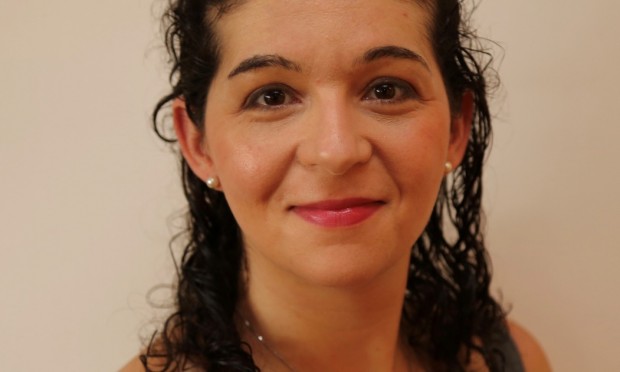
Career Advice with Sasha Kalb, VP Compliance & Risk, American Express Global Business Travel
- In our second instalment of our interview series with successful lawyers in the field, we’re excited to bring  you Sasha Kalb, sharing her insights and tips on how she established and maintains a growing and successful career.
Career Stats
Name: Sasha Kalb
Current role: VP Compliance & Risk, American Express Global Business Travel
Law School: Brooklyn Law School
First job: Attorney Advisor, US Customs and Border Protection
Years of experience: 11 1/2
- Tell us about your career path and how you got to be where you are today?
When I finished law school, I knew I wanted to work in the area of International Law, but didn’t quite know what that meant. I was given some good advice by a fellow graduate from my law school who worked at Customs and Border Protection (CBP). He suggested that it was a good place to start because I could get some real, practical experience in my first year out of law school. And he was right – it was a great place to start. I started to understand what it meant to build an internal customs/international trade program. From there, I broadened my role into general corporate compliance.
- What’s the biggest challenge in your current role, and how are you handling it?
Managing time zones. I live in Hong Kong and cover all of Asia-Pacific. Given all of the varying time zones in the region, this means that my clients start work at 5-6am and finish work at 10:30 my time. In addition, many of my team members are based in Europe and the U.S., which makes the days even longer.
- What’s the best piece of career advice you were given? What’s the worst?
I was offered a wonderful career opportunity when I was five months pregnant with my first child. I was scared about taking the opportunity and considering turning it down. But someone I trust very much told me to take the job because great opportunities don’t come along very often. I did and it worked out really well.
- How is technology impacting your role?
To some degree, it is making my role easier. Recently, I was able to avoid a long-haul journey away from my family by scheduling a video conference in lieu of an in-person meeting. On the other hand, technology means that we are always connected…and available to work.
- How are you balancing work and your personal life?
I have a family and a job that requires very long hours. So managing work and my personal life is a constant balancing act. I don’t think I will ever get the balance quite right, but I will keep working on it.
See our law firm openings and start your job search with Lawjobs.com today.
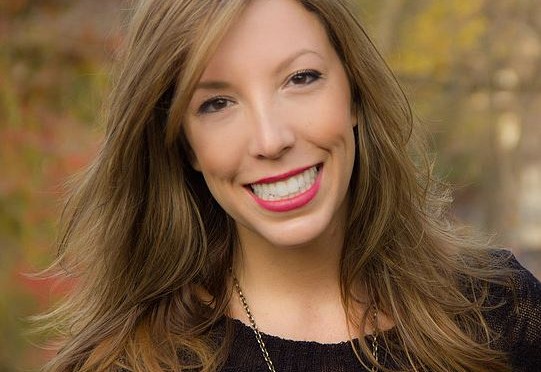
Emerging Industries in Legal Recruitment
The legal sector has seen major growth where emerging markets require immediate organizational development and expansion. Many of these markets are quickly evolving and expanding. The candidate pools are limited, and the talent is in high-demand. Cluen develops recruitment software that supports strategic search teams all around the world. We interviewed some of our clients to decipher what specific industries have seen the most growth.
Data Privacy/Cybersecurity
Data breaches are increasing at an astonishing rate and so is the demand for legal professionals with data privacy experience. The explosion of regulatory compliance in areas like data hosting and storage has resulted in law firms all over the world rethinking their attorney hiring and internal operational hiring altogether. New positions have been created from Privacy Compliance Officer, Data Governance Director, Privacy and Data Protection Counsel to HIPPA Privacy Officer. With U.S. compensation laws coming into play and GDPR around the corner, the need for talent in this area is expanding at an exponential rate.
InsurTech
Technology has changed the way the insurance industry conducts business. This transformation has led to an overflow of regulatory issues and disruption within the insurance product cycle. We now have sensors in cars, personal devices and the ability to break-up various insurance products that allow for media and data tracking in real-time. Â
Brad Bruner, East Coast Managing Partner at Mlegal Group, explains: “The continuing proliferation of InsurTech has not only disrupted the traditional insurance industry in its drive to squeeze out efficiencies in many innovative ways. It has also brought the highly regulated insurance industry into the former regulatory Wild West of technology innovation and online commerce. InsurTech is proving to be a bonanza for attorneys who have the relevant regulatory chops relating to insurance law and the requisite technical savvy to keep up with the lightning-fast changes affecting online commerce across numerous jurisdictions.â€
Blockchain/Cryptocurrencies
These peer-to-peer decentralized networks enable developers to create markets for transactions of goods and services, without a middleman. This can drastically reduce the time it takes to make and log transactions as well as the cost and labor involved in property transfers.
Overall, we found the blockchain practice area to be one of the most challenging sectors in legal recruitment. Evan Fox, Director of Recruiting at Audrey Golden, explains: “We are seeing a very high demand for FinTech attorneys in the blockchain and cryptocurrency space. The work emerging is generally concerned–at this stage at least–with products or transactions that are covered by the securities laws. Thus, the ideal candidate is someone who has a thorough grasp of the technology and can counsel clients on securities issues and financial regulations.
Since the candidate pool is small, firms are interviewing more candidates that they may not otherwise have looked at, such as someone from a lower tier school, a smaller firm, or even someone who’s current practice covers only 20% of what they are looking for. I give all my candidates interested in blockchain the same advice. First, be flexible. Blockchain technology is evolving rapidly leaving everyone to guess the dominant legal issues in years to come. Second, do whatever you can to elbow your way into any deal concerning this technology, no matter how small the role – even the smallest experience can differentiate your resume from the others.† Â
Interactive Gaming
The soon-to-be billion-dollar eSports industry has become mainstream, to say the least. Attorneys are being hired to help players, teams and game developers with their business and legal matters like contract negotiations, legal betting concerns, mergers and acquisitions, litigation, intellectual property, privacy/data collection, and endorsements.
Additionally, there is an increasing need for legal services within the VR/AR sectors. Copyright law, intellectual property, privacy/data collection and even contractual debates regarding collaborations between the two gaming platforms.
Energy
There have been significant increases in energy projects and various developments in renewable technologies. Specifically, clean tech, mining and oil and gas. This means energy companies are required to comply with an increasingly regulated environment. Finding the talent with knowledge of the ever-changing landscape will be vital in ensuring this success of this transforming industry.
Cannabis Industry
According to Cowen & Co, the $6 billion legal cannabis market is expected to reach $50 billion by 2026. Recreational use has been legalized in eight states, including California, and the District of Columbia. This means there has been the immediate need for attorneys to aid in defining countless regulations as well as in every aspect of the process from contracts, manufacturing to distribution, taxes, and sale.
Trending Practice Areas
Scott Love, President of The Attorney Search Group, explains: “One of the hottest practice areas for law firms is corporate transactional. Not only is the immediate activity on an increasing trajectory in terms of short-term revenue potential, but strategically this practice area gives law firms deep roots into clients that can be parlayed into cross-selling opportunities for other practice areas. The true client ownership experience usually starts in this practice area. Once the client relationship is solid, opportunities for legal work can be then shared with other groups, such as IP, Labor and Employment, and commercial litigation.â€
What It Means for Legal Recruitment
Law firms and in-house teams are moving quickly to hire within these markets. If your recruitment firm is looking to capitalize within these areas, you should update your recruitment database by making sure that you are capturing these sectors. Start assessing potential candidates along these vectors and create your talent pipelines accordingly. These positions are in high demand and the market for talent that excels within these industries happens to be limited.
Start your job search with Lawjobs.com today.
AUTHOR:
Kandace Miller.
The Cluen Corporation
Â
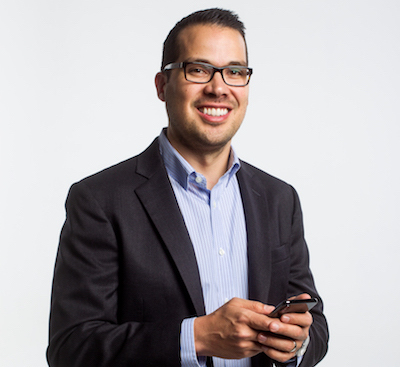
Career Advice with James Goodnow, Managing Partner, Fennemore Craig
In the first of our interview series with successful lawyers in the field, we’re delighted to bring you some great career advice from James Goodnow, one of the youngest lawyers to run a large American law firm.
Career Stats
Name: James Goodnow
Current role: Managing Partner, Fennemore Craig
Law School: Harvard Law School
First job: Summer File Clerk, Fennemore Craig
Years of experience: 18 in law; 12 as an attorney
- Tell us about your career path and how you got to be where you are today?
Law runs in the family. My dad was a lawyer, first for the government, and then later as an in-house attorney. I knew from a young age I wanted to follow in his footsteps, even if I didn’t fully have an understanding of what being a lawyer meant. I got my first job in the legal world as a summer file clerk at Fennemore Craig. I returned to Fennemore during law school as a summer associate, got hired full time after graduation, made partner, joined the management committee, and now serve as the committee’s chair. I’ve been privileged to make this firm my home for my entire career, and have held positions at every level. That’s allowed me to see the firm from the inside out and understand it in unique ways.
- What’s the biggest challenge in your current role, and how are you handling it?
We’re facing many of the same challenges that are plaguing the legal industry as a whole. The market for private legal services is contracting generally, as bigger players are moving more and more work in-house. The clients that remain are pushing for lower rates and commoditized practices, which at a certain point aren’t sustainable. Non-traditional legal service companies are stepping in and taking up market share. We’re working to stay ahead of these challenges by encouraging innovation, rethinking the law firm model, keeping overhead low, and providing reminders to our clients that the quality of legal service they get from a firm like Fennemore isn’t something that you can go out and replace tomorrow with an off-brand copycat.
- What qualities do you think make you successful in your role?
More than anything, I think it’s how much I enjoy interacting with people. The modern legal practice is hugely centered around interpersonal communication. I feel joy when I get to know my fellow attorneys and legal professionals, learn about their interests, get to know their families. Those kinds of connections help me do my job better. I understand the needs of the firm’s people better, and I hope it also helps them trust me when I come up with proposals for the firm.
I’ve also benefited from being an unapologetic tech nerd. My practice sits at the intersection of law, business, and technology. We use tech to connect with clients, prepare cutting-edge video demand packages, track and analyze our numbers, and position ourselves online. Being an “elder Millennial†puts me in a sweet spot to be young enough to embrace technology, while still being able to work with people of different generations – including those who aren’t ultra-tech savvy.
- What’s the best piece of career advice you were given? What’s the worst?
Best: “There’s no substitute for hard work.â€Â Simple, but true.
Worst: “Friends are friends, business is business.â€Â I’ve never liked this one. I’ve typically heard people use this when they’re trying to justify hurting someone they care about. It strikes me that you don’t say this unless you know you’re doing wrong by somebody important to you. On a more practical note, for supposedly being pro-business, this advice can be a bad business move. Business is about relationships, and once you’re known as someone who can hurt those you’re close to, every relationship you have is going to suffer. I’m friends with the attorneys in our firm, and I aim to treat them with respect. Sometimes, tough decisions have to be made. That doesn’t mean you can’t make those calls compassionately, and in a way that allows everyone involved to maintain their dignity.
- What do you know now that you wish you knew when you were starting out your legal career?
Whatever stress you’re dealing with today probably isn’t going to matter in five years. There’s always another emergency around the corner, another fire you’re going to have to put out, so save your energy and don’t stress yourself out over every little snag you hit. Take the long view, stay calm, and keep things in perspective. Whatever you’re facing, you will handle it.  Billions of people on this planet are having a worse day than you are. Take a breath, keep moving, work hard, and everything will be better soon.
- Where do you go now for career or work advice?
I’ve been blessed to have had more mentors over the years than I can name in this space. I’m grateful for all of them. Recently, I’ve really come to rely on the two former managing partners at our firm that are still practicing. I meet with them regularly for insight and guidance as I transition into the new role. More than anything, though, my close friend and firm partner Marc Lamber has been an invaluable mentor to me through my entire career. I wouldn’t be the lawyer I am today without his advice, and I’ll continue to sit under his learning tree as long as he’ll have me.
- How is technology impacting your role / organization / industry?
Every way possible. Law is now a 24/7, global business. Clients expect constant communication, and cloud-based document storage means that being out of the office is no longer the impediment to working that it used to be – for better and for worse. Tech-based competitors like LegalZoom are eating up market share, keeping traditional law firms on our toes. Tech-enabled virtual law firms like FisherBroyles are also challenging the traditional model. Insurance companies and major corporate players are using Big Data analysis techniques to quantify and commoditize the practice of law. My own firm is experimenting with AI-based legal research. Law is heading for a massive tech disruption, and we aim to be on the leading edge of those changes.
- What causes are you personally invested in?
I care deeply about developing diverse representation within the firm. Prior to becoming chair of the management committee, I chaired the firm’s Diversity and Retention Council, which was charged with bringing in and keeping diverse attorneys. The legal industry as a whole has struggled to bring in diverse attorneys, and more importantly to keep them on track to partnership. The entire industry loses far too many diverse attorneys as they climb the associate ladder. Encouraging diversity isn’t about touchy-feely, political correctness; it’s about developing a major competitive advantage. The research is clear that diverse teams are stronger, smarter, more efficient teams. The legal industry can’t afford to continue letting strong, bright attorneys fall through the cracks.
- How are you balancing work and your personal life?
This is the single biggest challenge I face. I’m blessed to be married to my high school sweetheart, who’s a businesswoman in her own right as the CEO of the college admissions consulting firm Going Ivy, and together we have two beautiful kids.  I’d gladly spend every minute I had with them, but my practice entails long hours, short deadlines, and a lot of travel. And that was before I became chair of the firm’s management committee. These days I take my kids to school every morning and do my best to be home by 7 pm to tuck them in and give them a goodnight kiss. I catch up with my wife after the kids’ bedtime, and then usually have to hit the computer again to catch up on emails before bed. I work hard to keep as much of the weekends free as possible and to carve out the odd lunch date or school trip wherever I can. It’s not easy, and it’s something I’ve long been working on being better at.
- Beyond work, what are you most passionate about?
Working out is a big part of maintaining my wellbeing, both for physical fitness and mental. Given how little time I have for family already, workouts are even harder to fit in, but I try to find the time. Workouts function as “me time,†which everyone needs at some point.  I grew up a competitive cyclist, and I lament the fact that my bike mostly collects dust. These days, I typically get up early, around 4:30 AM and work out in my house before the kids get up for breakfast. I also recently splurged on a treadmill desk for my office, which is perfect for tapping out emails on an iPad or handling phone calls.
See our law firm openings and start your job search with Lawjobs.com today.

Inclusion Riders and The Mansfield Rule: Women and Diversity in Law
On International Women’s Day it seems fitting that we highlight some of the efforts to increase diversity in the legal industry.
As #inclusionrider reverberated around the world this weekend following Frances McDormand’s Oscar speech, diversity advocates delighted. Started by the Annenberg Inclusion Initiative, the contractual provisions of an inclusion rider are not new. However, they offer new hope that with widespread adoption we could see tangible changes. For those in a position to use them, it provides a way to take action and make an impact.
Writing in Corporate Counsel this week, Sue Reisinger speculates that “it’s possible some highly recruited executive—a CEO or general counsel perhaps—could likewise try to insert diversity hiring goals into an employment contract.â€. Once in a position of authority though, executives have the power to increase diversity at the company, and also demand that their vendors and providers show a commitment to diversity in their own organizations. That of course extends to outside counsel too, and the list of corporations who are insisting on diversity among their preferred providers is growing.
Law firms are responding to this call for action at all levels. Cue the Mansfield Rule, born out of the 2016 Women in Law Hackathon hosted by Diversity Lab. According to their website “the Mansfield Rule – the next generation of the Rooney Rule – certifies that law firms consider at least 30% women and minority lawyers for significant leadership roles”.
The rule is so named after Arabella Mansfield, the first woman admitted to the practice of law in the U.S. in 1869. This is an apt reminder of how far we’ve come, but there is much more work ahead. These are all positive signs that the conversations are turning to action. We’ll continue to follow these trends with interest.
Join the conversation and check out some of the great work being done by the following groups:
Minority Corporate Counsel Association
Women, Influence & Power in Law
Annenberg Inclusion Initiative

How to Land on Your Feet in the Legal Industry
Getting let go or fired can be stressful, and if you’re like most people in the legal industry, you may feel uncertain about what options are available to you and what next steps to take. Here are some basic job search tips that everyone can use when they have lost their jobs.
Update Your Resume
One of the most important steps you can take is to bring your resume up-to-date. All too often, we neglect this important document simply because we have a successful career. Keeping your resume updated with recent certifications, accomplishments and awards is important; take the time to review and update your resume today. Take some time to update your social media profiles as well; LinkedIn and other social sites can be a great source of new leads.
Keep in Contact With Peers
Networking is one of the best things you can do when searching for a new position. Remaining in contact with your former coworkers can help you stay updated on current changes in law that could have an impact on your future. Networking with those who are still active in the field will also help you feel less out of the loop from what is happening in the legal industry. Your existing network may also help you land a new position; always keep the word out among your peers that you’re looking for a new position.
Take Job Hunting Seriously
It’s easy to treat job hunting as something you must do. Chances are after a job loss you’re feeling despondent and ungrounded; make sure you treat finding a new position like a full-time job. The more seriously you take your job search, the more serious potential employers are to treat you seriously.
Be Prepared for Interviews
Many of us find the interview process stressful. If you have not been on an interview in a long time, you could benefit from a mock interview. Get a friend or family member to do a mock job interview so you can hone your interview skills. Make sure you feel confident about your answers to difficult questions you’ll likely face including why you are looking for a new position.
Filling in Resume Gaps
You will need to explain to prospective employers why you are no longer at your previous job, whether you left by choice or not. It’s best to prepare an answer beforehand so you are ready to answer this question.
Sugar coating a firing can be challenging. The best way to handle this during an interview is to be honest about the circumstances without placing blame on anyone, including your former employer. Make sure you point out any lessons you’ve learned from being fired.
Layoffs are fairly simple to explain; however, make sure your answer is truthful and brief. With the current state of the economy, and slow growth for the legal industry it is not uncommon for law firms to downsize. If needed, you may expand upon this with what you’ve learned from the experience.
If you’ve decided it was time to move on, you may have to explain what reasons were behind your decision. Make sure you avoid badmouthing the firm or its partners and instead, focus on the positives and what your prior position taught you about yourself and your career goals.

How to Optimize Law Firm Onboarding
Hiring new employees is an expensive and time-consuming task, so it is important to make sure they start on the right foot. In the legal field, proper onboarding and training is vital to ensuring that fewer mistakes are made, and that your new hires will be valuable to you for years to come. Optimization of training and welcoming of new employees can go a very long way toward helping those employees get settled into their new roles.
Training Comes First in Onboarding Legal Talent
No matter how much legal experience or education someone has, every law firm they work for will have different procedures. The laws they work with will be the same, but there are nuances to be addressed. Consider specific training for:
– The procedures for handling files
– Requirements when working with clients
– The best way of providing information to paralegals
– How to optimize scheduling
– Any specifics related to safeguarding client information
– How technology is factored into the daily work
– Who to talk to if stress becomes a problem
If training is not optimized and the legal recruiting process is not taken seriously, it can be difficult for any attorney to get a foothold at a new firm and perform well.
Make Sure New Employees Feel Welcome
Another way to optimize the legal onboarding process is to ensure that a new law firm employee feels welcome, as that can help reduce stress levels. When people do not feel like they are allowed to become a part of their workplace, they can withdraw and avoid asking questions or learning new things. Onboarding is more than just giving a set of instructions, it is also about welcoming new employees to the firm’s culture.
Listen to What Your Employees Need
Ask your current employees for feedback on their onboarding experience. Listening to what they thought was done well, along with what they felt they had to learn on their own, can go a very long way toward the onboarding process. Collecting this information helps law firms realize:
- Where they might be falling short when they onboard employees
- What changes need to be made to the legal recruiting and onboarding processes
- How they can improve their firm’s training
While not all attorneys will need as much onboarding help as others, it is very important to provide more, not less, for optimal value for the attorneys and the firm as a whole.

